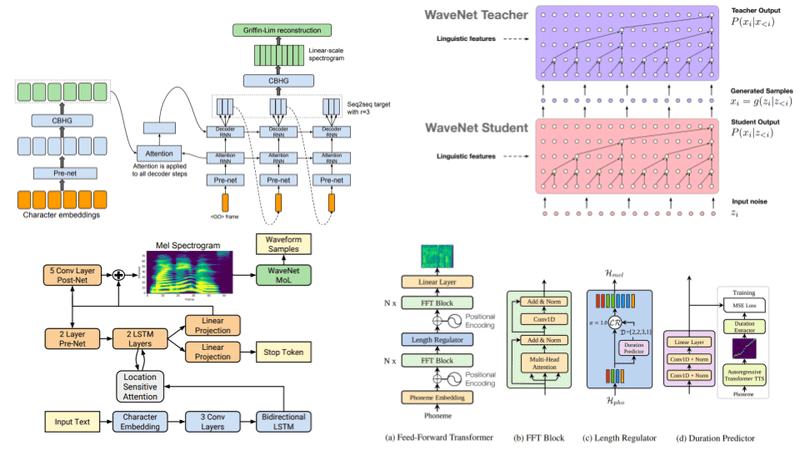These stocks have a lot of room left to increase in value as AI-related spending grows.
Artificial intelligence (AI) has been the driving force behind the current bull market run. The strong demand for AI hardware, software, and development tools and services has resulted in ballooning revenue and profits for several high-profile tech companies. But the trend may be just getting started.
Generative AI spending will increase from $67 billion last year to $1.3 trillion by 2032, according to estimates from Bloomberg Intelligence. That huge and rapidly growing addressable market leaves a lot of opportunity for companies to keep expanding quickly. There are many different ways to invest in the continued growth of artificial intelligence, but it’s important to avoid stocks where the price may have gotten ahead of the reality of their finances.
The following three companies all present great opportunities to buy AI stocks at an attractive price, and you can invest in any of them with as little as $200.

Image source: Getty Images.
1. Taiwan Semiconductor Manufacturing
Taiwan Semiconductor Manufacturing Company (TSM -3.55%), also known as TSMC, is the leading chip manufacturer in the world. It captures the majority of orders for high-end chip designs thanks to its advanced technology. It can then use that revenue to reinvest in R&D and develop better processes for the next generation of chips, creating a virtuous cycle. Some of its biggest customers are Nvidia and Apple.
The company just reported strong second-quarter earnings and better-than-expected Q3 guidance. It’s no surprise that CFO Wendell Huang said the contributing factors to this outlook are “strong smartphone and AI-related demand for our leading-edge process technologies.”
TSMC is a secular way to invest in the growing demand for AI chips. While Nvidia currently makes the bulk of GPUs powering AI training data centers, several other companies are working on designs to displace Nvidia’s chips or reduce their reliance on a single company. Regardless of who’s designing the chips, TSMC is likely going to get its business thanks to its advanced technology capabilities and the virtuous cycle protecting its lead.
Geopolitical factors do add some extra risk to the investment in the Taiwanese company, but at its current price, the stock looks attractive. Shares currently trade for a forward price-to-earnings ratio (P/E) of 27.2. With AI driving demand, TSMC could increase prices, expand its margins, and boost its bottom line quickly over the next few years. That would result in earnings growth that more than justifies the current valuation and the extra risk involved.
2. Snowflake
Cloud infrastructure is one of the backbones of AI development, and Snowflake (SNOW 0.01%) plays a pivotal role for many large enterprises looking to leverage their cloud data for AI. The company helps enterprises using multiple public cloud services and their own servers to aggregate data into a “data lake,” producing a “single source of truth.”
Last year, Snowflake launched Cortex AI, a platform enabling businesses to apply large language models to their own data to easily create unique generative AI applications. Cortex allows businesses to fine-tune models for their specific use cases, easily search unstructured data, and use AI to produce valuable insights. Snowflake also offers some of its own tools built with Cortex, including its Snowflake Copilot.
Snowflake reported its first-quarter earnings in May. Its 34% increase in revenue was a significant slowdown from the 50% revenue growth it produced in the same period a year ago, but an acceleration from the 33% uptick it saw in the fourth quarter. Management now expects better full-year revenue than it originally forecast at the start of the year, but still a slowdown from its breakneck growth of the last few years.
Investors have punished the stock as a result, but the price has fallen to the point where it looks attractive. Shares trade for an enterprise value-to-sales ratio of less than 14. With the long runway ahead of it for growth fueled by AI, investors should expect strong revenue for years to come, albeit at lower levels than we’ve seen in prior years.
The bottom line should rise significantly over time as it maintains a high gross margin and benefits from operating leverage. That should result in impressive year-over-year earnings growth for years to come.
3. UiPath
UiPath (PATH -0.33%) is the market leader in robotic process automation (RPA) software. Its software makes it possible to automate repetitive tasks, so workers can be more efficient and focus on making good decisions and creative outputs. It’s integrating AI capabilities into its tools that can, for example, understand a contract and automate tasks based on the documentation.
UiPath disappointed investors when it reported its first-quarter results at the end of May. Management cut its outlook for full-year recurring revenue by about 4% to a range of $1.66 billion to $1.665 billion. That resulted in a 50% reduction in the operating income forecast, dropping it to $145 million. Additionally, CEO Rob Enslin announced his resignation from the company just a few months after taking the position, and founder Daniel Dines retook the mantle.
Those results, understandably, led to a massive sell-off. But the long-term outlook for UiPath remains promising. Its dollar-based net retention rate remains well over 100%, indicating it offers a sticky product and its land-and-expand strategy is working. It’s effectively helping existing customers find more opportunities to use RPA, especially with the help of AI. The global RPA market will grow from $3 billion in 2023 to over $30 billion by 2030, according to Grand View Research. So there are likely a lot more opportunities on the horizon for UiPath.
The sell-off appears to be overdone. Shares now trade for an enterprise value-to-sales ratio of less than 4. With strong potential for double-digit revenue growth (easily doable in a market expanding by 40% per year) and operating leverage, UiPath looks like a solid investment at this price.
Adam Levy has positions in Apple and Taiwan Semiconductor Manufacturing. The Motley Fool has positions in and recommends Apple, Nvidia, Snowflake, Taiwan Semiconductor Manufacturing, and UiPath. The Motley Fool has a disclosure policy.



